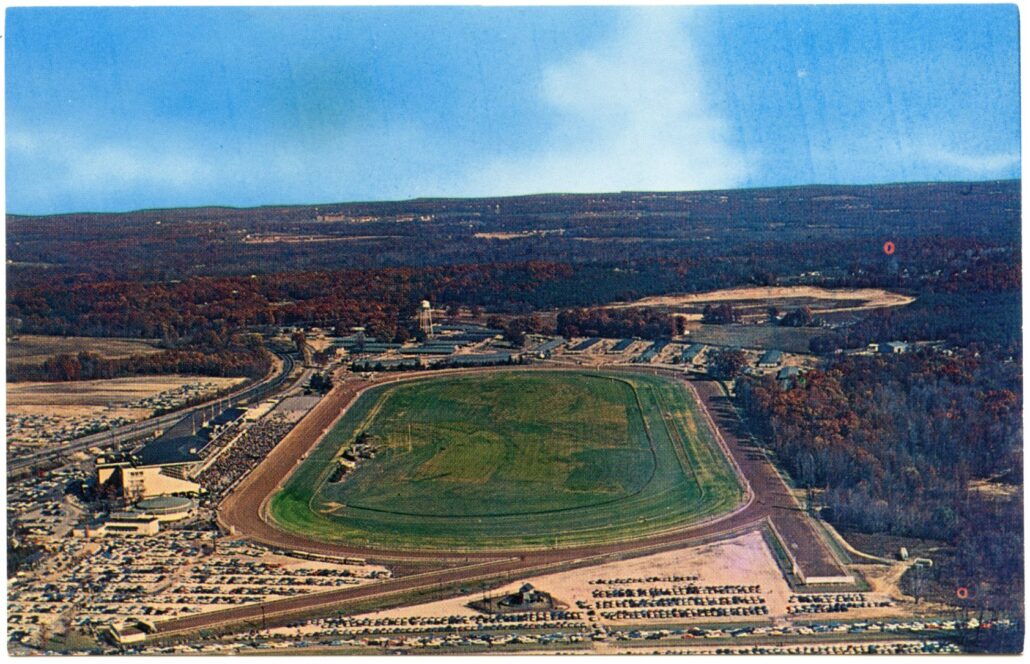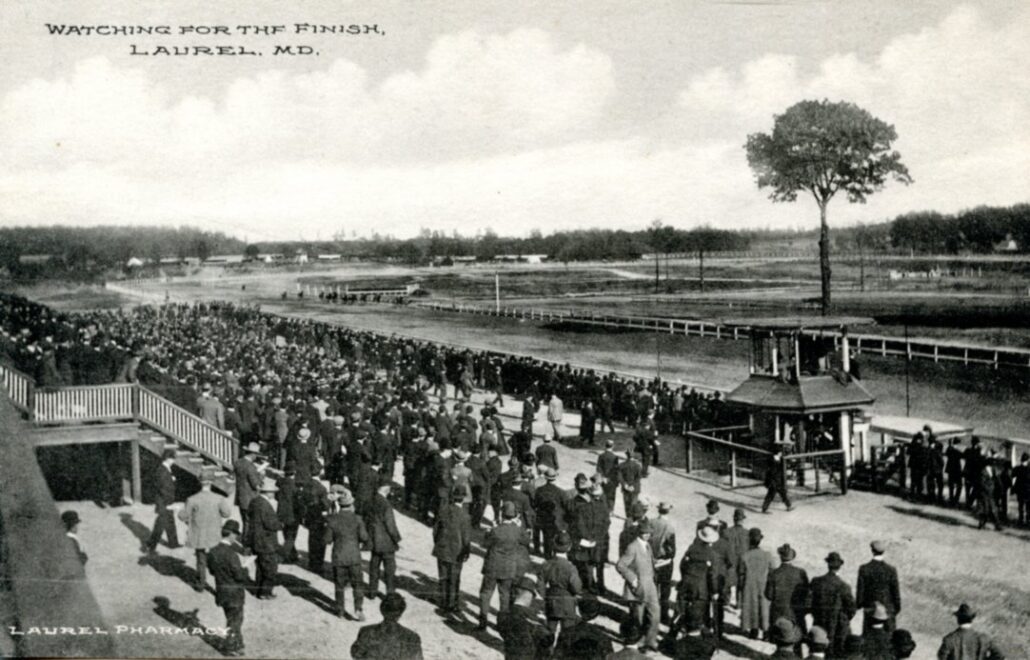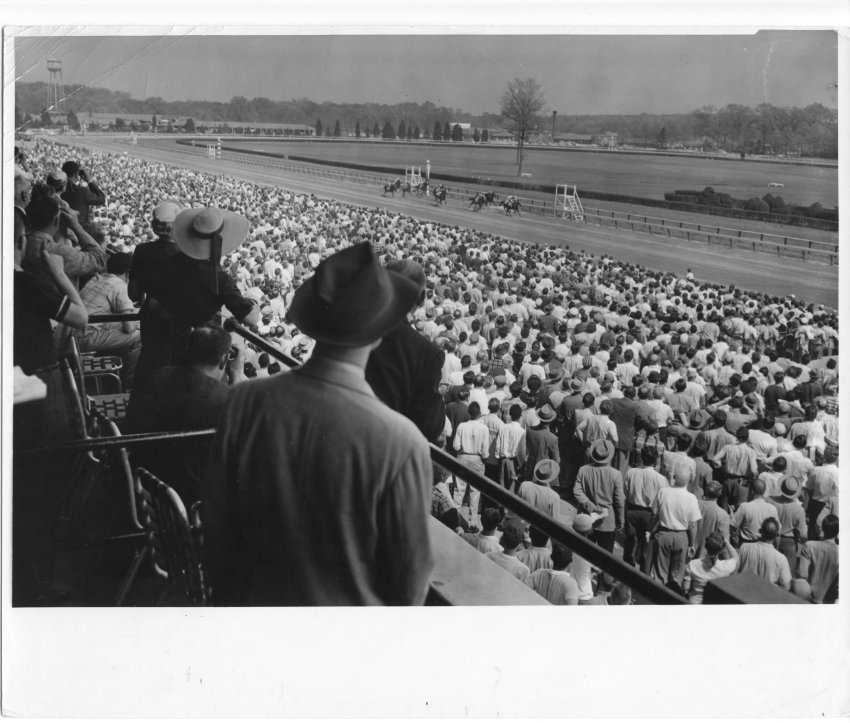By JOE MURCHISON and NANCY WELCH

Courtesy of Laurel Historical Society
On April 8, the Maryland legislature passed a bill that will restructure the state’s racing industry and enable the state to assume ownership of Baltimore’s Pimlico Race Course, home of the Preakness Stakes. Gov. Wes Moore is expected to sign the bill, which includes $400 million in bonds earmarked for rebuilding Pimlico.
“We think this bill is very important, not just for the horse racing industry, but for the community that houses Pimlico, which is Park Heights,” Moore said Monday, according to Maryland Matters.
Pimlico is currently owned by the Stronach Group, a Canadian entertainment and real estate conglomerate. The Maryland Thoroughbred Racetrack Operating Authority (MTROA), a nonprofit established by the Maryland General Assembly in 2023, will assume management and operation of Pimlico on July 1.
For fans of Laurel Park, the city’s 113-year-old thoroughbred racetrack, this news is as good as it gets — for a couple of years. The Preakness, the second jewel of Triple Crown racing, will move to Laurel Park for the 2025 and 2026 seasons while Pimlico is being rebuilt.
When the Preakness returns to Pimlico in 2027, Laurel Park, which is also owned by the Stronach Group, is due to close permanently.

Courtesy of Laurel Historical Society
Stronach has already allocated 63 acres of Laurel Park property to Paddock Pointe, a mixed-use development along Route 1 in Howard County. The development, which began construction in 2020, is slated to include 1,000 homes as well as commercial and office space.
What will happen to the remaining 166 acres at Laurel Park is uncertain, though Stronach is expected to close the facility and put the property up for sale.
Laurel Park’s future looked brighter three years ago. In 2020, the state legislature developed a plan that would make Laurel Park the state’s main thoroughbred track, with almost all of Pimlico’s races, except for the Preakness, taking place at Laurel. The legislation authorized a state bond sale of $375 million to renovate the tracks at both Pimlico and Laurel.
The legislature was trying to preserve a statewide equine industry that generates an estimated $2 billion a year in economic activity, with $572 million of that from racing, according to the MTROA report. But the two-track plan hit a brick wall when the cost of needed improvements to both tracks was found to far exceed $375 million.
Of the two tracks, Laurel Park has been the statistical high achiever in recent years. According to the Maryland Racing Commission’s 2022 annual report, Laurel Park’s attendance (147,106) was twice that of Pimlico that year. Laurel Park’s wagering total ($43.9 million) was more than three times that of the Baltimore track.
State Sen. Jim Rosapepe (District 21) suggested that the state’s favoring Pimlico over Laurel Park is a matter of weighing the needs of the two cities that are home to the courses. Rosapepe, who represents the Laurel area including Laurel Park (most of which is in Anne Arundel County), said, “Obviously the Preakness specifically and Pimlico generally are a big brand for Baltimore, and Baltimore has a lot of problems. People in the Baltimore area feel very strongly about Pimlico helping to improve the entire community. … They and we know that west Anne Arundel County and northern Prince George’s [County] have a lot more going for us economically than [simply] the Laurel racetrack.”
Rosapepe added that he was excited about Laurel Park hosting the Preakness for a couple of years.

Courtesy of Laurel Historical Society
Laurel Park has put Laurel on the map for more than a century. Founded by private investors in 1911, the track hosted the Washington, D.C International during the 1950s, bringing top horses from Europe, including a horse belonging to Queen Elizabeth, to the city. The park has also hosted the annual Maryland Million since its inception in 1984. The brainchild of TV sportscaster Jim McKay, the Maryland Million is an annual day of races that feature Maryland-bred horses, with total purses amounting to $1 million.







